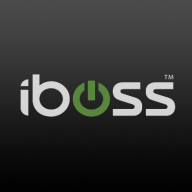


Perimeter 81 and Cisco Secure Client are leading solutions in network security. Users find Perimeter 81 easier to use and deploy, while Cisco Secure Client is preferred for its comprehensive feature set.
Features: Perimeter 81 offers seamless integration, reliable remote access, and strong security protocols. Cisco Secure Client provides advanced threat detection, extensive reporting tools, and higher customization options. Users appreciate Perimeter 81 for its simplicity and efficiency, while Cisco Secure Client is valued for its depth in security measures.
Room for Improvement: Users of Perimeter 81 suggest adding more advanced features and improving scalability. Cisco Secure Client users highlight the need for better UI design, performance enhancements, and a more intuitive interface.
Ease of Deployment and Customer Service: Perimeter 81 is noted for its straightforward deployment process and responsive customer support. Cisco Secure Client, although more complex to deploy, offers detailed documentation and comprehensive support. Users find Perimeter 81 quicker to implement, whereas Cisco Secure Client requires more initial setup time but provides strong post-deployment support.
Pricing and ROI: Users report that Perimeter 81 has a cost-effective pricing model and quicker ROI. Conversely, Cisco Secure Client, despite higher upfront costs, is regarded as worth the investment due to its extensive feature set. Perimeter 81 is favored for its affordability, while Cisco Secure Client is chosen for long-term value.

| Company Size | Count |
|---|---|
| Small Business | 6 |
| Midsize Enterprise | 6 |
| Large Enterprise | 5 |
| Company Size | Count |
|---|---|
| Small Business | 53 |
| Midsize Enterprise | 20 |
| Large Enterprise | 13 |
| Company Size | Count |
|---|---|
| Small Business | 27 |
| Midsize Enterprise | 10 |
| Large Enterprise | 46 |
Iboss offers a comprehensive cloud-based security platform valued for its scalability and autonomous features, ensuring robust security with easy deployment and management capabilities.
Renowned for its robust security architecture, Iboss integrates seamlessly within diverse networks, delivering efficient granular filtering and advanced content categorization. Its single pane of glass console provides ease of management, allowing rapid scalability suitable for rapidly deploying environments. Operates in BYOD setups due to inline filtering without device installation. Integration with cloud-based applications enhances user control, and features like SASE, SSL inspection, and ChatGPT risk protection stand as highlights. Despite its strengths, users have pointed out areas for enhancement like direct navigation in reports, SSL decryption, and better cloud integration while having room to improve data loss prevention.
What are the most important features of Iboss?The usage of Iboss spans educational institutions, specifically K-12, to enforce internet policies, protect data, and support remote work environments. It provides web filtering and security frameworks to ensure safe browsing. Its platform-as-a-service model offers flexibility for both cloud-based and on-premises requirements, integrating seamlessly to deliver enhanced security features suitable for various deployment needs including zero trust, CASB, and network security for work-from-home setups.
Check Point Harmony SASE, formerly Perimeter 81, offers robust security features like split tunneling, MFA, and Zero Trust Network Access focused on secure remote access and optimized connectivity for remote teams.
Check Point Harmony SASE delivers advanced security through a user-friendly interface, efficient VPN connections, and a centralized management console. It enhances security with real-time threat intelligence from ThreatCloud and traffic management via built-in optimization. Firewall as a Service and Secure Web Gateway safeguard against unauthorized access and phishing. While users seek enhanced networking customizations and better integration with identity providers, there's an emphasis on improving reporting, real-time analytics, and policy management. Requests also include a Chrome extension, traffic balancing, and simplified configuration to address some resource-intensive aspects.
What are the key features of Check Point Harmony SASE?
How can organizations benefit from using Check Point Harmony SASE?
Check Point Harmony SASE is used across industries for secure remote access and connectivity, protecting sensitive data, and managing access to corporate resources. It is ideal for those with hybrid cloud models and requires comprehensive security measures combined with existing IT infrastructures to meet specific industry demands.
Cisco Secure Client (including AnyConnect) delivers reliable, stable connectivity and seamless integration with Active Directory, ensuring secure remote access through a one-click VPN capability. It's lightweight, user-friendly, and supports major operating systems, enhancing remote work flexibility.
Cisco Secure Client, including AnyConnect, is designed for secure remote connectivity, offering multi-factor authentication, advanced malware protection, and automatic error diagnostics. Compatible with Windows, Mac, and Linux, it provides an intuitive setup and a clean interface. While it excels in ease of use, issues such as the outdated Linux build and the need for modern UI enhancements persist. Users also face connectivity challenges with frequent updates and high prices, alongside the need for better endpoint security and system integration. Popular for remote work, it facilitates secure access to corporate networks, allowing seamless interactions with resources like emails, documents, and applications.
What key features does Cisco Secure Client offer?Cisco Secure Client is widely implemented across industries for secure remote connectivity, especially in sectors requiring constant access to servers, data centers, and research labs. It supports remote work by enabling employees in diverse fields to access internal resources efficiently, maintaining productivity and security.
We monitor all Enterprise Infrastructure VPN reviews to prevent fraudulent reviews and keep review quality high. We do not post reviews by company employees or direct competitors. We validate each review for authenticity via cross-reference with LinkedIn, and personal follow-up with the reviewer when necessary.